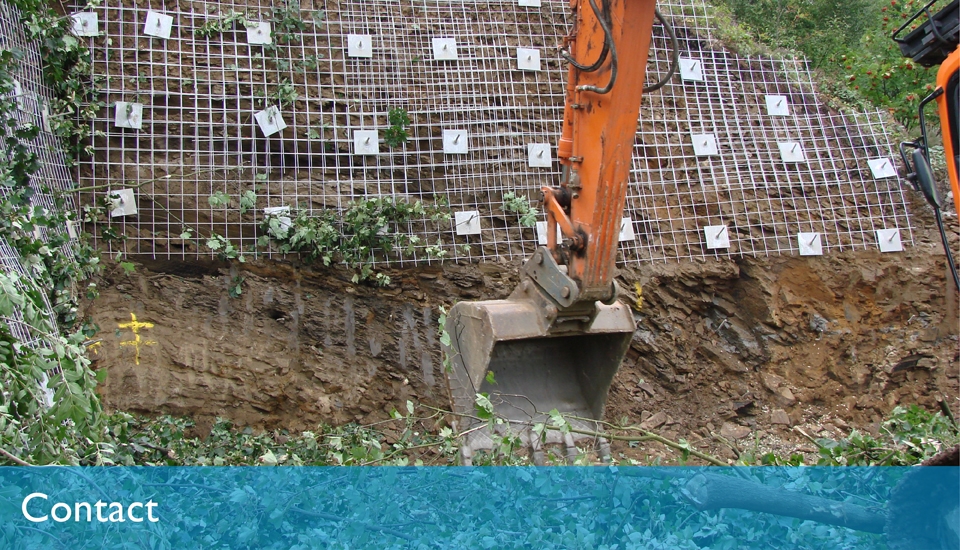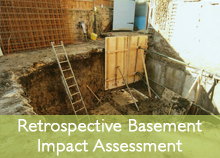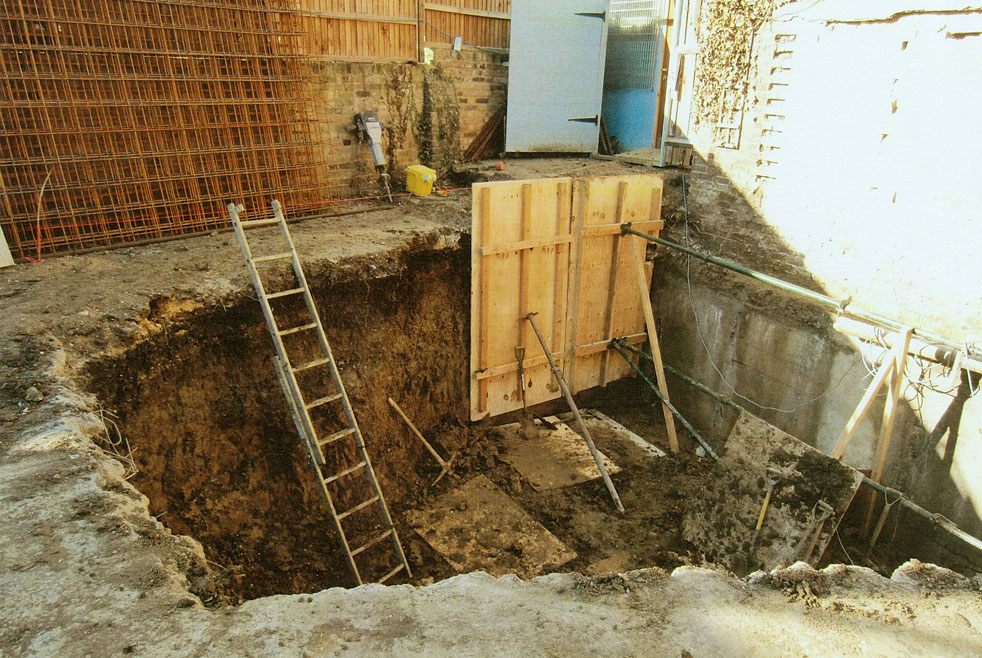Basement Impact Assessment
Basement Impact Assessments (BIAs) are becoming increasingly mandatory particularly in London to meet planning requirements for development of sub-surface space. Ashton Bennett’s qualified and experienced geologists and hydrogeologists undertake Basement Impact Assessments including screening, scoping, desk study and ground investigation. A detailed impact assessment is followed by a site review to present all findings and to make recommendations for mitigating measures and foundation design. When submitting applications for basement developments, the level of technical information will vary according to the type of the development, and the planning authority and is likely to include:
1. Site specific screening and scoping of existing geological, hydrological and hydrogeological conditions of the site and the wider area in order to identify areas susceptible to instability from ground and/or water movement, localised flooding and lost rivers.
2. Detailed intrusive investigation to assess local ground and ground water conditions, including, through the use of boreholes, potential impacts on water movements and on adjoining/nearby properties.
3. Identification of suitable temporary and permanent construction methods and mitigation measures for safe basement developments including monitoring of adjacent properties.
4. Devising a method for monitoring local ground conditions, water movement, subsidence and drainage.
5. Ground movement calculations according to CIRIA to assess potential ground movement in line with Burland’s scale of damage.
All technical reports have to be prepared by a suitably qualified chartered engineer, chartered water and environmental manager and chartered geologist, who is a member of the relevant professional body. Geologists and engineers at Ashton Bennett meet the qualification requirements.
A Basement Impact Assessment was undertaken for a prestigious client in Richmond who needed planning consent for a basement that had a large – and famous – action group against the development. The planning officer stated that Ashton Bennett’s Basement Impact Assessment was more than comprehensive and was the most thorough basement application ever put into Richmond. As a result the planning committee voted for planning approval.
Ashton Bennett undertake Basement Impact Assessments (BIA) for properties throughout the UK, and particularly in the London Boroughs including Camden, RBKC, Westminster, Islington, Hackney, Greenwich, Haringey, Hammersmith, Fulham, Merton, Richmond, Kingston Upon Thames and others. Our BIAs follow the guidelines produced by the various Borough Councils. The requirements generally include some or all of the information below:
Screening and Scoping Stage
Collection and assessment of:
- Archival Maps
- Geology and hydrogeology
- Hydrology and lost rivers
- Flood Risk from rivers/canals/reservoirs/groundwater
- Critical Drainage Areas
- Environmental data
- Landfill and Mining Data
- Site Inspection and walk over survey
- Review of adjacent buildings
- Checking for signs of subsidence
- Checking for underground services
Impact Assessment Stage
Ground Investigation
- Undertaking boreholes and/or trial pits for ground investigation
- Collecting soil samples for geotechnical/environmental testing
- Installing standpipes for monitoring groundwater and/or gas levels
Ground Movement Calculations
Ensuring that the scheme will maintain structural stability of the building and neighbouring properties.
Calculating, according to CIRIA guidelines, levels of any potential ground movements that may affect adjacent properties, according to Burland’s scale of damage.
Structural Design
- Structural Method Statement
- Construction Method Statement
- Design of temporary and permanent support for excavation
- Design for monitoring buildings during construction
Flood Risk Assessment
Site specific flood risk assessment if necessary
BIA Impact Assessment Report
- Assessment of any increase in surface water runoff
- Assessing impact of basement on hydrology and hydrogeology
- Assessing impact of basement on groundwater, groundwater flows and levels
- Assessing impact of basement on geology and slope stability
- Collation and Interpretation of all other work, as described above
- Recommendations for foundation design and temporary and permanent support
- Recommendations for any mitigating measures required for construction
- Reporting in full BIA Report



 Houses wishing to extend and which are restricted by planning regulations or by space are extending downwards into the ground and in many parts of London such planning applications require Basement Impact Assessments (BIA) to ensure that the excavation for and the construction of the basement is not going to detrimentally affect neighbouring properties or detrimentally affect or be affected by any services or underground rivers.
Houses wishing to extend and which are restricted by planning regulations or by space are extending downwards into the ground and in many parts of London such planning applications require Basement Impact Assessments (BIA) to ensure that the excavation for and the construction of the basement is not going to detrimentally affect neighbouring properties or detrimentally affect or be affected by any services or underground rivers.
 Ashton Bennett undertook a Retrospective Basement Impact Assessment for this basement excavation in Camden in order to secure the ground and satisfy planning.
Ashton Bennett undertook a Retrospective Basement Impact Assessment for this basement excavation in Camden in order to secure the ground and satisfy planning.





